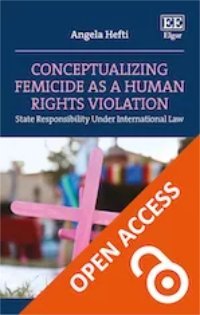By Elisabeth Duban,
The OSCE participating States have agreed to several commitments that specifically mandate the Organization’s structures to assist participating States with developing programmes aimed at preventing all forms of gender-based violence, as outlined in the 2004 Action Plan for the Promotion of Gender Equality, and OSCE Ministerial Council decisions from 2005, 2014 and 2018 which emphasize the importance of collecting and disseminating reliable, disaggregated data on violence against women, alongside efforts to criminalize gender-based violence. Femicide, the gender-related killing of women and girls, is a global phenomenon and represents the most extreme manifestation of violence against women. This report aims to assess the response to femicide across the 57 OSCE participating States, focusing on three key areas: the criminal justice response, the collection of comparable data, and the reporting and analysis of femicide.
Prague: The Organization for Security and Co-operation in Europe (OSCE), 2025. 50p.



